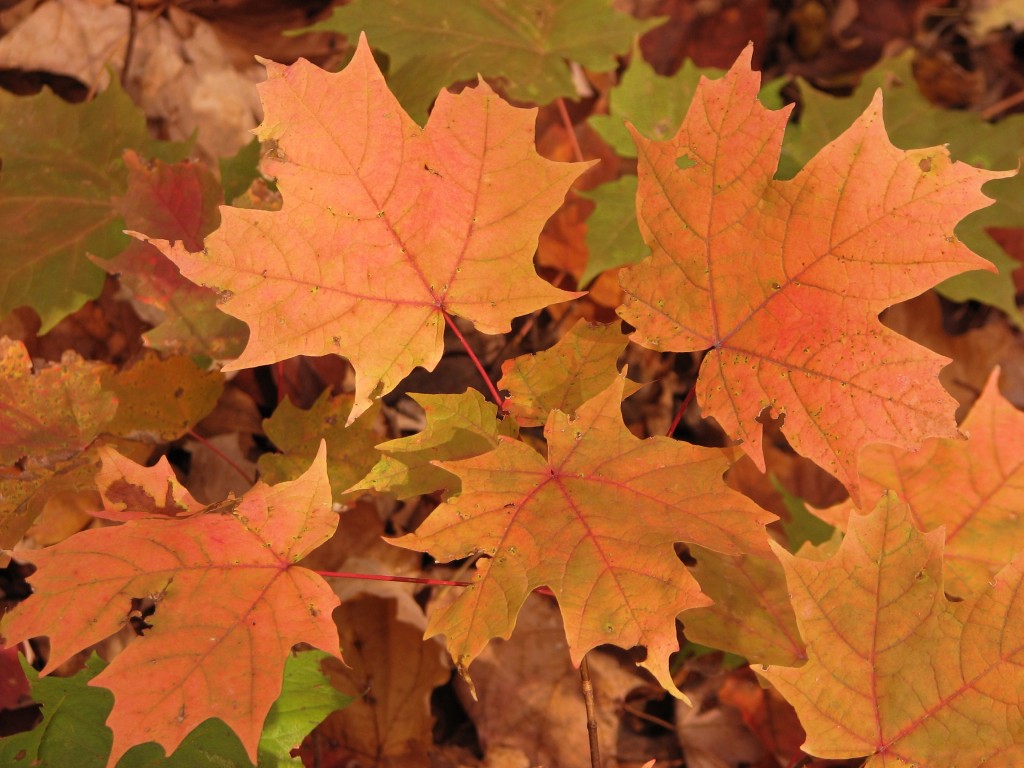It’s time to harness the true power of WeatherTrend360’s proprietary algorithms again as we close out October and head into November. First lets break New Jersey into proper climatological regions. We have the upper elevations of NWNJ, the interior coastal plain (SWNJ through CNJ and into NENJ), and the coastal regions (most of SENJ). I’ll be representing each climatological region with a 28-day graph from weathertrends360 data followed by a brief discussion. Keep in mind that these algorithms are 84% accurate and are based on oceanic water cycles and time table series. It’s not 100% but better than everything else out there.
Zone 1: Higher Elevations of NWNJ (Sussex, Warren, Hunterdon, Morris, N. Somerset, and N. Passaic) – Known for little to no Atlantic Ocean influence, colder-snowier winters, and drier conditions in general when compared to the coast. This region is known to get hot when high pressure sits overhead during the summer.
Zone 1 Discussion: You can immediately see how the next few days (Nov 3-5) are mild and pleasant. Then we have our two potential low pressure disturbances (Nov 6-7 and Nov 9-11) that surround this coming weekend. After that, temperatures take a dive through at least November 15-16. We’re talking highs in the 40s and lows in the 20s/30s thanks to a few Canadian air mass spills. The second half of the month looks to moderate a bit in temperature but feature a few more rain systems. In addition to providing much needed rain to the region, these systems will help develop Canadian snow pack which should, in theory, contribute to a colder winter than average. We’ll revisit the second half of November on the 15th. For now get ready for cold air to move in after this weekend.
Zone 2: Interior Coastal Plain (Salem, Gloucester, Camden, W. Burlington, Mercer, W. Monmouth, Middlesex, Union, Essex, Hudson, Bergen, and S. Passaic) – Known for naturally higher temperatures due to lower elevations away from the oceanic influence. This region is also known as “heat island” due to transportation (I-95 corridor), smog, abundant asphalt, concrete, and other man-made structures that naturally absorb heat (Heat Island).
Zone 2 Discussion: You can immediately see how the next few days (Nov 3-5) are mild and pleasant. Then we have our two potential low pressure disturbances (Nov 6-7 and Nov 9-11) that surround this coming weekend. After that, temperatures take a dive through at least November 15-16. We’re talking highs in the 40s and 50s with lows in the 30s. This will bring multiple frosts and even a freeze or two to the region thanks to a few Canadian air mass spills. The second half of the month looks to moderate a bit in temperature but feature a few more rain systems. In addition to providing much needed rain to the region, these systems will help develop Canadian snow pack which should, in theory, contribute to a colder winter than average. We’ll revisit the second half of November on the 15th. For now get ready for cold air to move in after this weekend.
Zone 3: Coastal Regions (Cumberland, Cape May, Atlantic, E. Burlington, Ocean, and E. Monmouth) – Known for tremendous influence from the Atlantic Ocean. Oceanic influence keeps this zone cooler in the summer and warmer in the winter than the interior coastal plain and especially the higher elevations of NWNJ.
Zone 3 Discussion: You can immediately see how the next few days (Nov 3-5) are mild and pleasant. Then we have our two potential low pressure disturbances (Nov 6-7 and Nov 9-11) that surround this coming weekend. After that, temperatures take a dive through at least November 15-16. We’re talking highs in the 40s and 50s with lows in the 30s. This will bring multiple frosts and even a freeze or two to the region thanks to a few Canadian air mass spills. The second half of the month looks to moderate a bit in temperature but feature a few more rain systems. In addition to providing much needed rain to the region, these systems will help develop Canadian snow pack which should, in theory, contribute to a colder winter than average. We’ll revisit the second half of November on the 15th. For now get ready for cold air to move in after this weekend.
Weathertrends360 is a complete, global, web solution to help retailers and suppliers capitalize on the weather and its influence on sales and marketing plans up to a year ahead. Learn how to become PROACTIVE vs REACTIVE with the weather in every phase of your business – how much inventory to buy/produce, where to allocate more/less, when to run weather-optimized advertising/marketing campaigns – weathertrends360 can help you determine all of this in minutes! 84% independently audited accuracy for both short-term and year-ahead forecasts for temperature and precipitation.
A forecast Weather Trends issued one year ago is more accurate than every other weather company’s 5 to 14-day forecasts. The University of Miami and West Point PhD Climatologist’s prove WTI’s year-ahead forecasts are several times more accurate than NOAA – Click to Download Report.
Enjoy the first half of your November and please be safe! JC
Jonathan Carr (JC) is the founder and sole operator of Weather NJ, New Jersey’s largest independent weather reporting agency. Since 2010, Jonathan has provided weather safety discussion and forecasting services for New Jersey and surrounding areas through the web and social media. Originally branded as Severe NJ Weather (before 2014), Weather NJ is proud to bring you accurate and responsible forecast discussion ahead of high-stakes weather scenarios that impact this great garden state of ours. All Weather. All New Jersey.™ Be safe! JC
